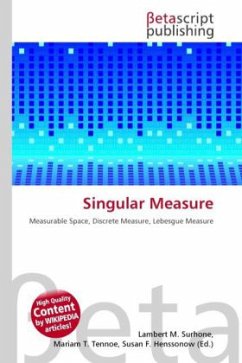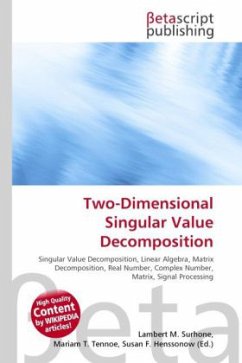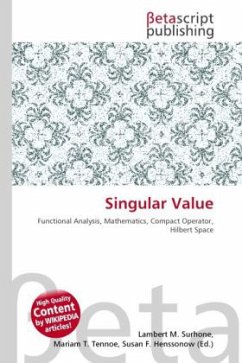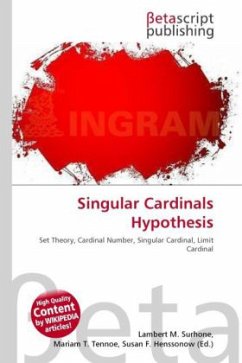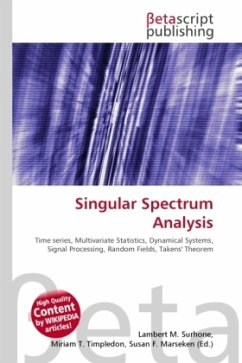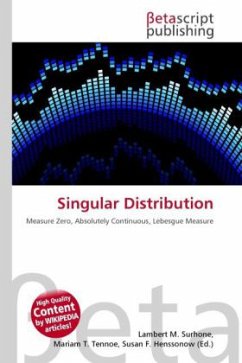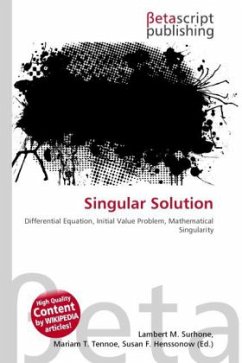High Quality Content by WIKIPEDIA articles! In mathematics, two positive (or signed or complex) measures and defined on a measurable space ( , ) are called singular if there exist two disjoint sets A and B in whose union is such that is zero on all measurable subsets of B while is zero on all measurable subsets of A. This is denoted by mu perp nu. A refined form of Lebesgue's decomposition theorem decomposes a singular measure into a singular continuous measure and a discrete measure. See below for examples. As a particular case, a measure defined on the Euclidean space Rn is called singular, if it is singular in respect to the Lebesgue measure on this space. For example, the Dirac delta function is a singular measure.
Bitte wählen Sie Ihr Anliegen aus.
Rechnungen
Retourenschein anfordern
Bestellstatus
Storno

